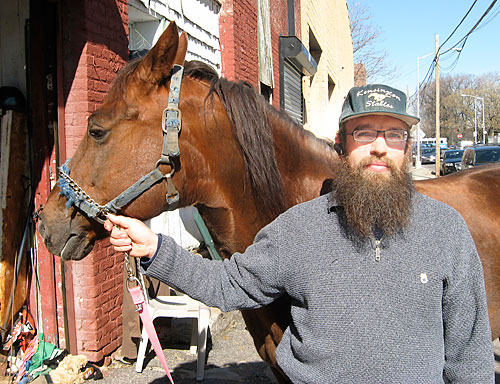A dark-horse buyer saved these stables!
The bankrupt owner of Prospect Park’s lone horse barn, Kensington Stables, sold the property at auction last month to a buyer who agreed to relieve the seller’s debts and keep the building and its operators in the riding business for at least five more years, according to the stables’ manager.
“The new business partner will pay those debts off and we’ll be partners in running the business,” said Walker Blankenship, who manages the Caton Place property owned by his mother, who inherited her late husband’s outstanding financial
obligations with the barn.
The purchaser — who the sellers declined to name until a bankruptcy-court judge officially approves the deal — will also refurbish the ailing facility after assuming ownership, according to Blankenship, who did say the buyer is a longtime Kensington Stables customer.
The barn’s current manager is contractually obligated to remain in his position for five years as part of the deal, and said that if the business is successful in that time, he is optimistic the new owner will keep the property as a riding facility, despite there being no formal obligation to do so in perpetuity.
“Because I’m part of the agreement, I’ll maintain control of the property, and I’ll have a lot of say in the matter,” Blankenship said. “If it can be made successful, we could go on indefinitely.”
And if the stables remain, the manager said locals can expect them to expand into a neighboring warehouse that once was home to the Prospect Park Riding Academy — the school that originally commissioned the barn’s construction in 1930.
“The discussion is to do an expansion,” Blankenship said.
The current owners first planned to bring Kensington Stables to auction in February, but called that sale off when another dark-horse buyer swept in with an offer to transform the property into a mixed-use development with accommodations for humans — and horses.
That deal fell through, however, and the family then talked with a number of would-be purchasers, including officials from the Department of Parks and Recreation, who hoped to preserve the stables as a public amenity.
But the city’s offer did not guarantee Blankenship continued operation of the facility under the parks department, and required the family to pony up hundreds of thousands of dollars for horse care while agency honchos chose a manager for the barn, so he and his mother turned it down, believing they could get a better deal for the property at auction.























